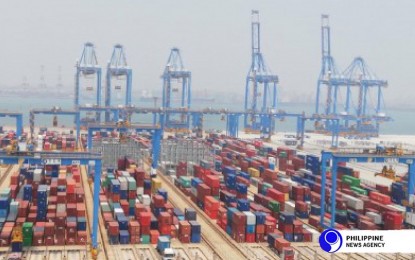
MANILA – Filipino exporters are encouraged anew to maximize free trade agreements (FTAs) between Asean member-countries and trading partners to enhance trade and investment opportunities.
But Jan Redmond Dela Vega of the Department of Trade and Industry-Bureau of International Trade Relations said that apart from markets of the United States and Japan, there is also potential in the Asean.
“In terms of our performance and in terms of our agreements that are existing, we only have those in place which are the Asean FTAs. And in recent years, we see that the Asean market is also a very important component or very important trading partner of the Philippines…,” he said in a recent virtual forum.
Dela Vega identified top exports to Asean which are still electronic products and manufacturing goods, such as other machinery and transport.
“Looking into these FTAs that we have, there is also potential for other goods and also services that we can export to other markets, not just within Japan, China rather but also within Asean,” he added.
Dela Vega said the Philippines is a party to seven Asean FTAs including those with China, Japan, Korea, Australia and New Zealand, India, and Hong Kong, and the Asean Free Trade Area (AFTA).
He said once the Regional Comprehensive Economic Partnership (RCEP) agreement entered into force, “we also see potential, wider areas of cooperation and more simplified rules of the game in dealing in terms of our trade.”
The RCEP agreement entered into force on January 1, 2022 for 10 signatory states, namely – Brunei Darussalam, Cambodia, Lao PDR, Singapore, Thailand, Viet Nam, Australia, China, Japan, and New Zealand. The deal was ratified by President Rodrigo Duterte last September 2 and is under Senate deliberations to secure concurrence.
Dela Vega said the country currently also has two bilateral non-Asean FTAs with Japan and European Free Trade Organization (EFTA) member states of Iceland, Liechtenstein, Norway and Switzerland.
“What these FTAs do is to simplify, provide a ‘super highway’ that exporters can avail of when dealing with external partners or when venturing outside of the country. At the same time, it also attracts investment, being part of an FTA arrangement. And also (these) complement existing efforts of the government to improve the business environment,” he added.
Dela Vega said FTAs enhance access to markets of trading partners and new ones, and provide safe or improved “rules of the game”.
“We also see recently in the FTAs that the Philippines engaged on is adoption of rules particularly not just with specific goods but also in terms of dealing with electronic commerce so we see here that at the same time, there is also disciplines that could assist our businesses or exports through for example, protection of intellectual property rights and enforcement,” he said.
Apart from FTAs, Dela Vega said other trade engagements of the Philippines include the Generalized System of Preferences (GSP) and cooperation mechanisms.
Sherrylou Marzo, manager of Export Marketing and Sales Section at Century Pacific Food, said the different FTAs and GSP have benefited her company, with tuna and sardines as its biggest exports.
“To all small and medium enterprises, I really encourage (you) to avail this preferential tariff since it will really help you because it will minimize taxes on goods… at the same time it’s also an advantage on your part so that you could be competitive in terms of pricing,” she said. (PR)
